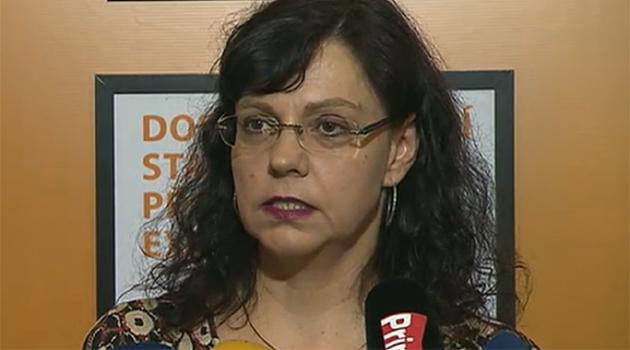Czech Republic is the last European country to institutionalize children under three

"The Czech Republic has been criticized for this for more than 20 years. Other countries consider our system unbelievable. We are the last country in Europe that makes it possible to place children under the age of three in institutions. All of Europe is ahead of us on this," said Věduna Bubleová, chair of the Child and Family Association, during yesterday’s session of the Czech Parliament’s Social Affairs Committee.
The association was created this past summer and has 24 member organizations. Studies have proven that institutionalizing children has adverse impacts on them.
The psychological consequences of institutionalization are long-term. Bubleová says the Czech Republic owes it to all children who have had to grow up in institutions to change the system.
Michal Ďorď of the organization "One Second Later" (Vteřina poté), which brings together children living in Czech children’s homes, was institutionalized at the age of eight months. "In Poland children must be 10 years old before they can be placed in an institution, in Austria or Germany they must be three, in Slovakia they must be six. We [the Czech Republic] are a bit behind," he noted.
Czech Labor and Social Affairs Minister Michaela Marksová (Czech Social Democrats) says the number of children in institutions is gradually declining. "We are doing our best to mainly keep children with their families of origin, but not at any cost. If violence is happening there, then it cannot be," she said.
Professional foster parents should be taking care of young children in crisis situations in the Czech Republic. Dana Lipová, director of the Sirius Foundation, says the annual register of health care services provided for last year shows that 1 606 children under the age of three were placed into children’s homes throughout the country.
Of those, 567 boys and girls ended up there for health reasons, 487 for both health and social reasons, and 552 just for social reasons. Parents requested the placement of a total of 1 146 children into such facilities.
"These are families nobody is working with. Two-thirds of these children shouldn’t have to be in an institution at all," Lipová said.
According to the Czech Parliament’s Working Group on Foster Care, the current emphasis on professional foster care means the system for aiding at-risk children vacillates in terms of its responsiveness, and the Working Group believes all types of care have their place in the system. "Don’t destroy something that works and can be improved. There is a need to temporarily halt this preference for professional foster care. Only those kinds of foster parents are increasing their numbers now – there is a lack of long-term foster parents and the number of adoptions is either declining or stagnant," said Jitka Chalánková (TOP 09), a member of the Social Affairs Committee who is on the Working Group.
Marksová emphasized that what is at issue is not closing children’s homes, but establishing the rules for their operation. "Children’s homes and institutions for infants are necessary and will be in the future. Right now we do not have other facilities or enough foster parents," she said.
The minister pointed out that some regions are already beginning to transform their children’s institutions into other kinds of facilities because the number of children placed with them is declining. Regional Authorities are changing them into halfway houses, for example, and providing other social services through them.
International institutions are also criticizing the fact that care for at-risk children in the Czech Republic is fragmented between three different ministries – Education, Health, and Labor and Social Affairs. Marksová said unification of the system so it will solely be administered by her ministry is planned.